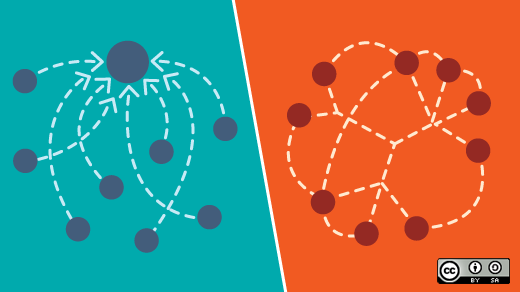6.8 KiB
The open organization everyone deserves
Want to build a sustainably successful organization? Then openness is
the way.

Let me share an email I recently received. It meant the world to me:
Hi Jos, just a quick message to thank you for the past six months. I really appreciate how I've been welcomed into the company and I feel like I've genuinely found my place here. There's a great vibe among the entire staff of working hard, lots of learning, having fun, and personal responsibility. Although everyone contributes to this atmosphere, it could only have come about with the support of management. So I just want to thank you for creating such an enjoyable work environment!
A work environment that encourages the collaborative utilization of everyone's combined skillset, one in which contributors are intrinsically motivated to do their best work, is something I would wish for everyone. That's why, over the past year especially, I've been cultivating an open organizational culture on my team and across my organization, Axians. Openness is the future, and it begins with individuals. In this article, I'll explain the mindset shifts I believe any individual leader must make in order to pave the way for an organizational culture of openness.
The technological is social
Social and technological changes are occurring faster than ever. These often seem like two separate movements—but are they really? The effect of the open source movement on the development of both innovative technologies and organizational cultures is many times greater than we may think. The open source community (as the name suggests) is shouldered by people—people who apply their skills to make the world a little better through new technologies, who realize the value of sharing both knowledge and material goods in both their work as well as their personal lives.
This means that in order to get the most out of new technologies, you need to have an open organizational culture in which employees contribute from a place of intrinsic motivation. The current generation of tech employees isn't drawn to organizations with a strong hierarchical culture. They're looking for open organizations that encourage and inspire them to excel every single day. They're looking for the kind of leadership that leaves ample room for individual input and ownership. A successful and future-proof organization demands an open culture and open leadership.
At its core, a sustainably successful organization revolves around a balance between a focus on people and a focus on the business. In my experience, for the majority of organizations, this balance leans too heavily towards the business. There is an urgent need for a greater focus on people. The open organization is the answer to restoring this balance. That's why establishing and leading an open organization should be the ultimate goal for contemporary managers. But doing this requires leaders capable of restoring the balance between business and the humans that work in it—and maintaining that balance.
A work environment that encourages the collaborative utilization of everyone's combined skillset, one in which contributors are intrinsically motivated to do their best work, is something I would wish for everyone.
At the same time, a successful organization today is one that enables intelligent collaboration and effective coordination. This will increase the collective intelligence and offer employees the space they need to develop and grow. Unlocking and utilizing the available potential helps shape the kind of organization in which everyone participates and contributes, and this can produce some truly remarkable results. It’s no small task for a leader to establish and lead an organization of this kind.
Authentic leadership
The human dimension present in an organization will in part determine the employers people choose to join, making it vital for managers to establish and lead an open organization. Part of openness is to be clear and honest about your intentions at all times.
This isn't just a gimmick, nor is it a skill you can easily "acquire." When you're working with people, they will immediately sense if your intentions aren't genuine. Because this process takes place on a subconscious level, it is unlikely people will articulate this feeling. Instead, it'll be reflected in their behavior: you might find people less involved and not opening up to you. In turn, you could experience their behavioras frustrating, even opposition. Sound familiar?
This is all about your credibility, which takes time to build. You'll be challenged, either consciously or subconsciously, to stick with your intentions. Be prepared to have to overcome mistrust and cynicism at times.
Are you up for that? Are you willing to examine the cause, to really invest your time and energy in trying to understand the other person? And will you stick to your principles?
What about you?
An open organization is about placing your trust in people and creating a culture of equality. At the end of the day, it's not about you; it's about the collective. Everyone is involved. Everyone gets to make mistakes or ask for help. Even you. As long as you can be open and honest about it.
So have you put "openness" on the agenda? And what about your organization? Is your management ready to open up—or are they clinging to "command and control"?
I hope you'll join me as I explore these issues further in an upcoming webinar.
via: https://opensource.com/open-organization/20/6/organization-everyone-deserves